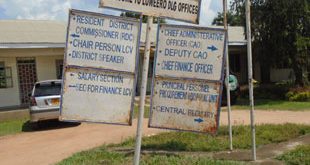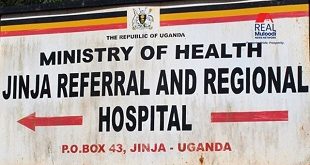
NEWS ANALYSIS | THE INDEPENDENT | Funeral arrangements for Paul Kato Lubwama, an artist and politician, have sparked a heated debate about the criteria for receiving a Catholic funeral.
The former Rubaga South Member of Parliament, a reported believer in traditional religion, died on Wednesday, June 7, after a short illness.
There has been a growing disagreement between the Church and the family of Kato Lubwama on whether he qualifies for a church funeral. People have been questioning why the Catholic Church has declined to hold a church funeral for the deceased.
This has raised the issue of whether Lubwama was a Catholic and whether his alleged involvement in witchcraft and ownership of a traditional shrine at his home disqualify him. “Why is the Church condemning Kato Lubwama? They preach forgiveness, yet they fail to demonstrate it,” mourners at Lubwama’s place argued.
But, amidst the controversy, the Catholic Church has long taken a firm stance on who qualifies and who doesn’t qualify for ecclesiastical burial or a requiem mass. Rev Fr Joseph Ssenkaali, the Kampala Archdiocesan Associate Judicial Vicar, said that in the Catholic Church there are four grounds that can be based on to deny someone a catholic sendoff according to the church teachings.
“First of all, for one to be given ecclesiastical funeral, they must be catholic. Since the funeral Mass is primarily for members of the Catholic Church, those who have not received the sacrament of baptism may not be eligible for a requiem Mass. But being catholic goes beyond having a catholic name or to have been baptized catholic,” Rev Fr Ssenkaali said.
It is important to note that there are certain circumstances in which someone may receive a Catholic burial, even if they were not formally baptized as Catholics. Based on available information, this includes children who, although not baptized, were intended to be baptized by their parents but passed away before the sacrament could be administered.
Additionally, Catechumens, individuals who have undergone preparation for baptism but have not yet received the sacrament, may also be eligible for a Catholic burial. However, the Canon Law that governs the Catholic Church grants the local bishop the authority to determine the eligibility for ecclesiastical funerals of baptized individuals who are affiliated with a non-Catholic Church or ecclesial community.
Code 1183.3 of the Canon Law states that a baptized person from a non-Catholic church may receive Catholic funeral rites if a minister from their own church is not available and the deceased person did not indicate while still alive that they did not want a Catholic funeral. The same Code, however, adds that this depends on the “prudent judgment” of the bishop.
Rev. Fr. Ssenkaali noted that there are certain circumstances where exceptions can be made, despite the general belief that a funeral Mass is typically offered for baptized Catholics. He explains that one reason the church may choose not to hold such a funeral service is if the deceased individual is considered a notorious apostate.
An apostate is a person who betrays or deserts the faith or religion he at one time professed to belong to and was baptized in it.
Fr. Ssenkaali explained that, under the Catholic Church, this category also includes individuals who may have converted to other religions with doctrines that differ from those of the Catholic Church.
The Associate Judicial Vicar provides further clarification by stating that individuals falling into these categories must have preached against the teachings or doctrines of the Church, rather than merely criticizing church leaders.
According to him, it is permissible for a faithful Catholic to express criticism or speak out against bishops without disqualifying themselves from receiving ecclesiastical funerals.
Fr. Ssenkaali further added that the second category consists of individuals who, prior to their death, have actively preached against the teachings of the Church. The other group encompasses those who have openly engaged in scandalous behaviour without displaying any signs of remorse, as well as manifest sinners whose actions would cause scandal among the faithful.
Monsignor Gerald Kalumba, the Vicar General of Kampala Archdiocese, also emphasizes that before the church considers the matter, the local community where the deceased person resided or attended prayers should have a say. Monsignor Kalumba, who also serves as the parish priest at Christ the King in Kampala, explains that it is the local community who can recommend to the church whether the deceased should receive a Catholic burial based on their observations of the person’s overall conduct during their lifetime.
Kalumba’s explanation clarifies why, in the case of a Catholic individual who passes away and their body needs to be transported to another location for burial, the local priest, guided by the input of the parishioners, writes a letter to the corresponding priest at the destination. Without such a letter, if the deceased’s religious affiliation is unknown at the burial location, they might not receive a Catholic funeral service.
However, Fr. Ssenkaali points out that the aforementioned categories can be overlooked if the individual demonstrates remorsefulness, engages in acts of penance, or receives the sacrament of Anointing of the Sick before their death. These acts of contrition and seeking spiritual healing can potentially lead to reconsideration by the Church regarding the eligibility for an ecclesiastical funeral, even if the individual falls into one of the previously mentioned categories.
Meanwhile, if there is any doubt or uncertainty regarding the eligibility for an ecclesiastical funeral, the matter is to be referred to the diocesan bishop of that area.
“If any doubt occurs, the local ordinary is to be consulted, and his judgment must be followed,” Code 1183 of the Canon Law reads in part, justifying that the bishop’s decision holds significant authority and provides guidance in situations where there may be ambiguity or questions concerning the eligibility for a Catholic funeral.
In relation to the current situation, the priest made it clear that the Catholic Church does not, in any manner, condemn the late Kato Lubwama, contrary to what some individuals may suggest. Concerning the family, the priest noted that if Kato Lubwama’s family members were faithful Catholics, they could have sought the support of the church where they are currently praying.
He expressed his opinion that if a Christian has been engaged in prayer, the church could have organized prayer services within its premises to benefit other family members who remain committed to their faith. This, he suggested, would be more appropriate than conducting prayers in a home that contains a traditional shrine
The priest also made it clear that if the Church chooses not to pray for someone, such as in the case of Kato Lubwama, it does not imply that the person is in hell. He added that the final judgment of one’s soul lies solely between the deceased and God.
Additionally, he emphasized that the Church offers various prayers for the faithful departed, both to support those who are dying and to strengthen the faith of those left behind. These prayers serve as a means of accompanying the dying individual and providing solace and spiritual support to their loved ones.
Rev. Ssenkaali also added that although the Church may withhold a requiem Mass for certain individuals, prayers can still be offered for them during any other Mass, specifically during the moment when prayers for the souls of the departed are offered. In this way, the Church acknowledges the need to pray for the souls of all, including those for whom a requiem Mass may not be granted.
He also advises the family members to come together and avoid being misled. According to him, if all issues and concerns are resolved, the family can be granted permission to have a Mass celebrated for their loved one, maybe at another time.
The priest expressed a strong reaction towards politicians such as Kampala Central Member of Parliament, Muhammad Nsereko, who have been criticizing the church’s position on the issue. He emphasized the importance of refraining from making what he called uninformed remarks and hollow statements.
******
URN
 The Independent Uganda: You get the Truth we Pay the Price
The Independent Uganda: You get the Truth we Pay the Price


